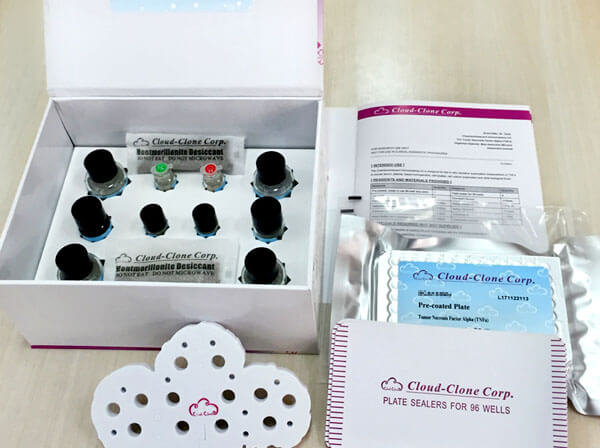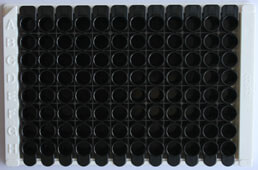CLIA Kit for Matrix Metalloproteinase 1 (MMP1) 

CLGN; CLG1; Collagenase; Interstitial Collagenase; Vertebrate Collagenase; Fibroblast Collagenase
- UOM
- FOB US$ 722.00 US$ 1,032.00 US$ 4,644.00 US$ 8,772.00 US$ 72,240.00
- Quantity
Overview
Properties
- Product No.SCA097Eq
- Organism SpeciesEquus caballus; Equine (Horse) Same name, Different species.
- ApplicationsChemiluminescent immunoassay for Antigen Detection.
Research use only - DownloadInstruction Manual
- CategoryTumor immunityInfection immunityCardiovascular biologyRheumatology
Sign into your account
Share a new citation as an author
Upload your experimental result
Review

Contact us
Please fill in the blank.
Recovery
Matrices listed below were spiked with certain level of recombinant Matrix Metalloproteinase 1 (MMP1) and the recovery rates were calculated by comparing the measured value to the expected amount of Matrix Metalloproteinase 1 (MMP1) in samples.
| Matrix | Recovery range (%) | Average(%) |
| serum(n=5) | 98-105 | 101 |
| EDTA plasma(n=5) | 93-101 | 96 |
| heparin plasma(n=5) | 80-92 | 88 |
Precision
Intra-assay Precision (Precision within an assay): 3 samples with low, middle and high level Matrix Metalloproteinase 1 (MMP1) were tested 20 times on one plate, respectively.
Inter-assay Precision (Precision between assays): 3 samples with low, middle and high level Matrix Metalloproteinase 1 (MMP1) were tested on 3 different plates, 8 replicates in each plate.
CV(%) = SD/meanX100
Intra-Assay: CV<10%
Inter-Assay: CV<12%
Linearity
The linearity of the kit was assayed by testing samples spiked with appropriate concentration of Matrix Metalloproteinase 1 (MMP1) and their serial dilutions. The results were demonstrated by the percentage of calculated concentration to the expected.
| Sample | 1:2 | 1:4 | 1:8 | 1:16 |
| serum(n=5) | 97-105% | 97-105% | 82-99% | 79-95% |
| EDTA plasma(n=5) | 95-105% | 87-95% | 78-92% | 82-97% |
| heparin plasma(n=5) | 79-88% | 92-104% | 89-97% | 94-102% |
Stability
The stability of kit is determined by the loss rate of activity. The loss rate of this kit is less than 5% within the expiration date under appropriate storage condition.
To minimize extra influence on the performance, operation procedures and lab conditions, especially room temperature, air humidity, incubator temperature should be strictly controlled. It is also strongly suggested that the whole assay is performed by the same operator from the beginning to the end.
Reagents and materials provided
| Reagents | Quantity | Reagents | Quantity |
| Pre-coated, ready to use 96-well strip plate | 1 | Plate sealer for 96 wells | 4 |
| Standard | 2 | Standard Diluent | 1×20mL |
| Detection Reagent A | 1×120µL | Assay Diluent A | 1×12mL |
| Detection Reagent B | 1×120µL | Assay Diluent B | 1×12mL |
| Substrate A | 1×10mL | Substrate B | 1×2mL |
| Wash Buffer (30 × concentrate) | 1×20mL | Instruction manual | 1 |
Assay procedure summary
1. Prepare all reagents, samples and standards;
2. Add 100µL standard or sample to each well. Incubate 1 hours at 37°C;
3. Aspirate and add 100µL prepared Detection Reagent A. Incubate 1 hour at 37°C;
4. Aspirate and wash 3 times;
5. Add 100µL prepared Detection Reagent B. Incubate 30 minutes at 37°C;
6. Aspirate and wash 5 times;
7. Add 100µL Substrate Solution. Incubate 10 minutes at 37°C;
8. Read RLU value immediately.

Test principle
The microplate provided in this kit has been pre-coated with an antibody specific to Matrix Metalloproteinase 1 (MMP1). Standards or samples are then added to the appropriate microplate wells with a biotin-conjugated antibody specific to Matrix Metalloproteinase 1 (MMP1). Next, Avidin conjugated to Horseradish Peroxidase (HRP) is added to each microplate well and incubated. Then the mixture of substrate A and B is added to generate glow light emission kinetics. Upon plate development, the intensity of the emitted light is proportional to the Matrix Metalloproteinase 1 (MMP1) level in the sample or standard.;
Giveaways
Increment services
-
 Single-component Reagents of Assay Kit
Single-component Reagents of Assay Kit
-
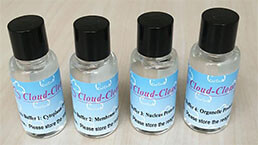 Lysis Buffer Specific for ELISA / CLIA
Lysis Buffer Specific for ELISA / CLIA
-
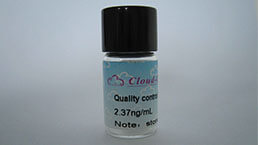 Quality Control of Kit
Quality Control of Kit
-
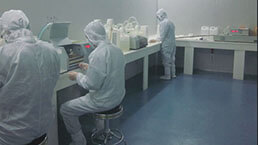 CLIA Kit Customized Service
CLIA Kit Customized Service
-
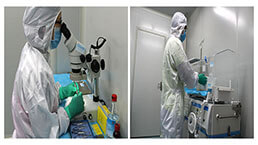 Disease Model Customized Service
Disease Model Customized Service
-
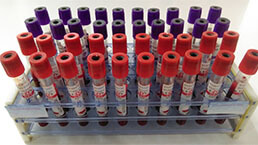 Serums Customized Service
Serums Customized Service
-
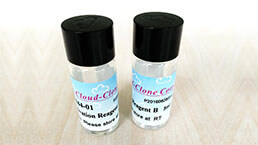 TGFB1 Activation Reagent
TGFB1 Activation Reagent
-
 Real Time PCR Experimental Service
Real Time PCR Experimental Service
-
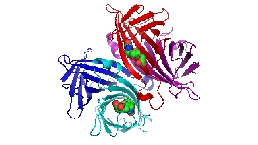 Streptavidin
Streptavidin
-
 Fast blue Protein Stain solution
Fast blue Protein Stain solution -
 Single-component Reagents of FLIA Kit
Single-component Reagents of FLIA Kit
-
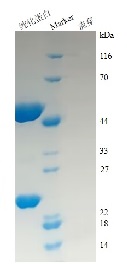 Streptavidin-Agarose Beads
Streptavidin-Agarose Beads
Citations
- Therapeutic effect of alpha lipoic acid combined with praziquantel on liver fibrosis induced by Schistosoma mansoni challenged miceSpringerLink: j33n80517577535k
- Bovine Respiratory Syncytial Virus and Histophilus somni Interaction at the Alveolar BarrierPubmed: 23649093
- A Combinatorial Relative Mass Value Evaluation of Endogenous Bioactive Proteins in Three-Dimensional Cultured Nucleus Pulposus Cells of Herniated Intervertebral Discs: Identification of Potential Target Proteins for Gene Therapeutic ApproachesPlosone: Source
- Analysis of the expression of nine secreted matrix metalloproteinases and their endogenous inhibitors in the brain of mice subjected to ischaemic strokePubmed:24671655
- Mycobacterium tuberculosis dysregulates MMP/TIMP balance to drive rapid cavitation and unrestrained bacterial proliferationPubmed:25186281
- Metabolic and cytoprotective effects of in vivo peri-patellar hyaluronic acid injections in cultured tenocytesPubmed:25333747
- Heme Oxygenase-1 Regulation of Matrix Metalloproteinase-1 Expression Underlies Distinct Disease Profiles in TuberculosisPubMed: 26268658
- Effect of ebosin on modulating interleukin-1&bgr;-induced inflammatory responses in rat fibroblast-like synoviocytesPubMed: 25938977
- Assessment of MMP-1, MMP-8 and TIMP-2 in experimental periodontitis treated with kaempferolpmc:PMC4848383
- From varices to venous ulceration: the story of chronic venous disease described by metalloproteinases.Pubmed:26991748
- Effect of ebosin on modulating interleukin-1β-induced inflammatory responses in rat fibroblast-like synoviocytespubmed:25938977
- Icariin inhibits MMP‑1, MMP‑3 and MMP‑13 expression through MAPK pathways in IL‑1β‑stimulated SW1353 chondrosarcoma cellspubmed:28447732
- The development of a matrix metalloproteinase-1 biosensor based on the surface plasmon resonance imaging techniquec6ay01856d
- Increased Chondrogenic Potential of Mesenchymal Cells From Adipose Tissue Versus Bone Marrow‐Derived Cells in Osteoarthritic In Vitro Modelspubmed:27739057
- Hypoxia enhances secretion of matrix metalloproteinases in bovine dermal fibroblasts:an in vitro approach to bovine digital dermatitis 10.108:09712119.2017.1335208
- SPRI biosensors for quantitative determination of matrix metalloproteinase-2DOI:10.1039/C7AY00786H
- From varices to venous ulceration: the story of chronic venous disease described by metalloproteinasespubmed:26991748
- Biomarker‐based phenotyping of myocardial fibrosis identifies patients with heart failure with preserved ejection fraction resistant to the beneficial effects of …Pubmed:29709099
- Hawthorn polyphenol extract inhibits UVB-induced skin photoaging by regulating MMP expression and type I procollagen production in micePubmed:30032605
- TIMP‐1 association with collagen type I overproduction in hereditary gingival fibromatosisPubmed:29989318
- Hypoxia enhances secretion of matrix metalloproteinases in bovine dermal fibroblasts: an approach to bovine digital dermatitis10.1080:09712119.2017.1335208
- Co-culture of osteochondral explants and synovial membrane as in vitro model for osteoarthritisPubmed: 30939166
- МАТРИКСНЫЕ МЕТАЛЛОПРОТЕИНАЗЫ: ЗНАЧЕНИЕ В РЕМОДЕЛИРОВАНИИ СЕРДЦА У ПАЦИЕНТОВ С ДИСПЛАЗИЕЙ СОЕДИНИТЕЛЬНОЙ ТКАНИ
- A New Analytical Method for Determination of Cathepsin L Based on the Surface Plasmon Resonance Imaging BiosensorPubmed: 31052424
- MT 1‐MMP evaluation in neointimal hyperplasia in the late follow‐up after prosthesis implantation
- Intraluminal fluid infusion in a rat jejunum ischemia/reperfusion model is associated with improved tissue perfusion and less mucosal damagePubmed: 31734236
- Effects of tetrahedral framework nucleic acid/wogonin complexes on osteoarthritisPubmed: 32047705
- Matrix metallopeptidase expression and modulation by transforming growth factor-β1 in equine endometrosisPubmed: 31980722
- Danlou tablet inhibits the inflammatory reaction of high-fat diet-induced atherosclerosis in ApoE knockout mice with myocardial ischemia via the NF-κB signaling …Pubmed: 32745509
- Undenatured type II collagen prevents and treats the osteoarthritis and motor function degradation in T2DM patients and db/db mice33890588
- Transcriptomic profiling revealed the role of apigenin-4′-O-α-L-rhamnoside in inhibiting the activation of rheumatoid arthritis fibroblast-like synoviocytes via MAPK …Pubmed:35660352
- Ebosin Attenuates the Inflammatory Responses Induced by TNF-α through Inhibiting NF-κB and MAPK Pathways in Rat Fibroblast-Like SynoviocytesPubmed:35340587




